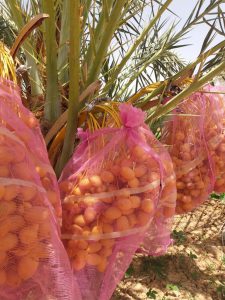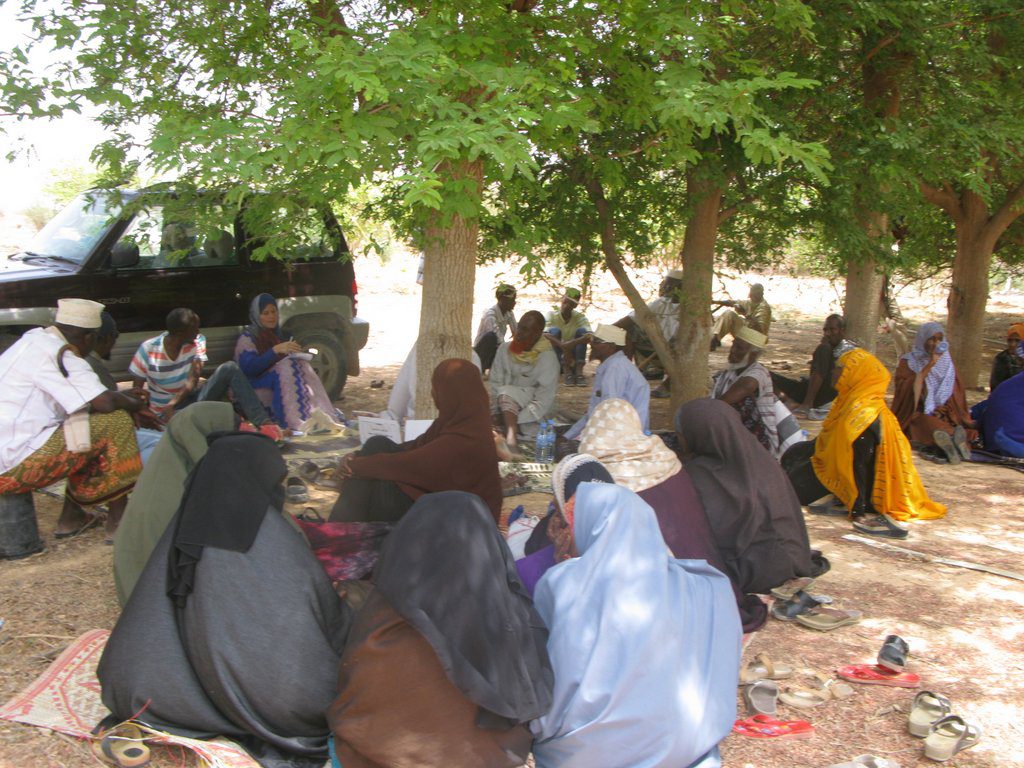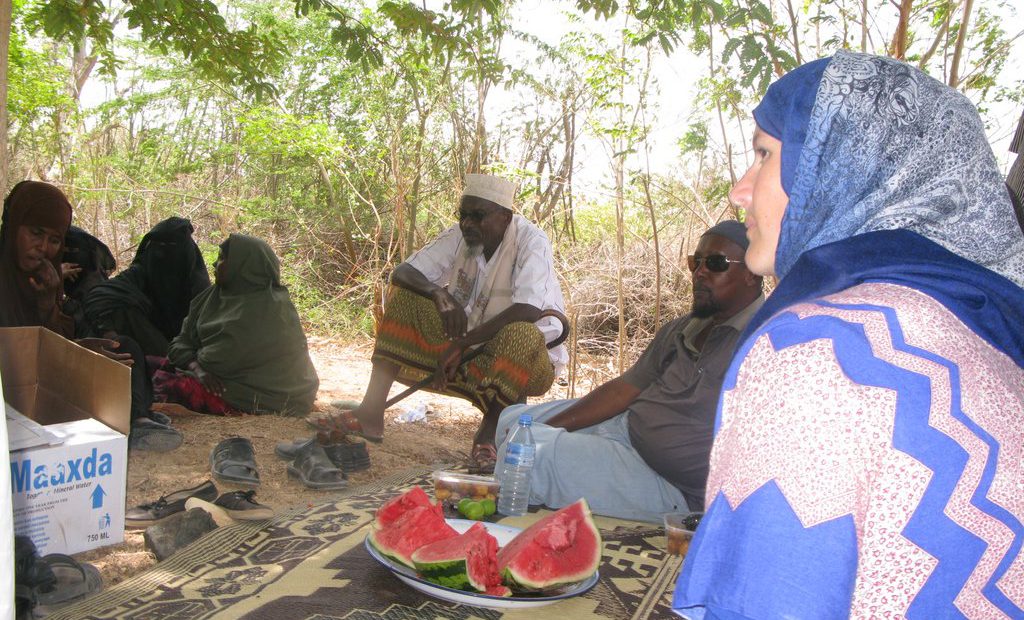Famers, both men and women, sit under the shade of an acacia tree in Jibagale, 20 kilometres outside Garowe town. The topic of the meeting is dates: a tasty and profitable fruit enjoyed throughout Somalia.
While seated on hand-made mats, the farmers share watermelon slices, pumpking pieces and tea. The farmers speak of their successes and challenges after receiving date palm seedlings from the International Committee of the Red Cross in September 2015.

Dates hang of a palm tree in one of the farms in Garowe. They’ll be harvested in early 2017. ©ICRC/Abdikarim Mohamed
Hassan Yusuf, 65, is the leader of the farmers and knows well the challenges they face – mainly a lack of water. He takes an ICRC agricultural expert on a tour of some of his fields, which are planted with dates, tomatoes and onions.
Hassan wasn’t always a farmer. He used to sell second-hand clothes in Garowe. But business wasn’t strong enough and he turned to farming. Today he owns a piece of land and says he has high expectations that his products will yield a healthy profit when he harvests his crops in early 2017.
The dates can be his most profitable product.
“We sell a kilo of our dates for $3, which is cheaper than the imported ones, which go for $6,” said Hassan. “And the good thing is that the communities living here prefer local produce, which increases demand even more.”
The farmers all say that water is their main challenge, given the nature of their semi-arid region, which experiences frequent droughts.
Marie Del Marmol, who is in charge of agricultural activities for the ICRC Somalia, agrees that the scarcity of water is the major threat facing the farmers.
“The farmers need to reduce the surface area they use to cultivate because of the high cost of irrigation,” she said. “Planting a diverse array of crops will also help mitigate risks. The date palm has a high market value and can help offset any loss of income due to decreased land cultivation.”
The ICRC will soon start a pilot project using drip irrigation to overcome water shortages, she said. The ICRC also plans to help farmers employ the use of tractors and cooperative management to help the community become more self-reliant.
“Water has always been a huge problem in our region, I have high hopes if solar irrigation is initiated we will be talking a different story today,” said Nadhifo Yussuf, a female farmer in Jibagale.
The ICRC believes that this community engagement approach helps improve chances for long-term success.
In November 2015 ICRC distributed 42,000 date palm seedlings to farmers in the Puntland region of Somalia in the Sanaag, Nugaal, Bari, Mudug and Sool communities. The dates will be ready for harvest in early 2017.

Marie discusses with farmers in an informal meeting the progress of a date-palm project in Garowe. ©ICRC/Abdikarim Mohamed


